Introduction
The IMA receives complaints as part of our duty to monitor and promote the implementation and application of the Citizens’ Rights parts of the Withdrawal and Separation Agreements.
In this article we detail the types of complaints we received in our second year of operation, including a comparison to 2021, the rights affected, the public bodies involved, the nationalities of citizens who complain and where they reside.
The IMA continues to take action on the issues raised in these complaints and you can read more about our work here.
The IMA has received 154 complaints from 1 January to 31 August 2022. This is broadly similar to the complaints received for the same period in 2021.
Complaints to the IMA
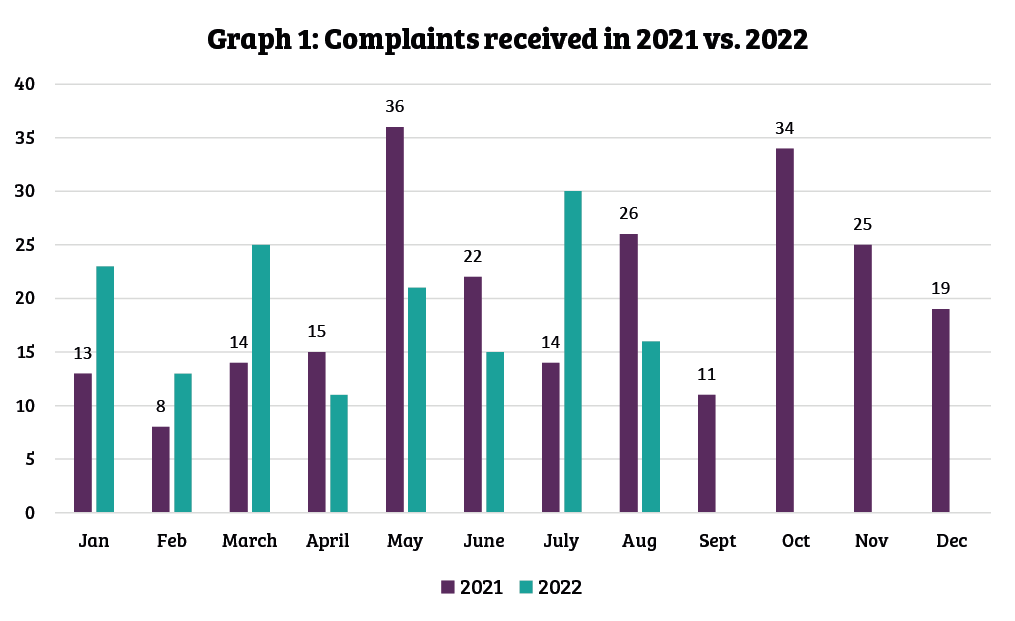
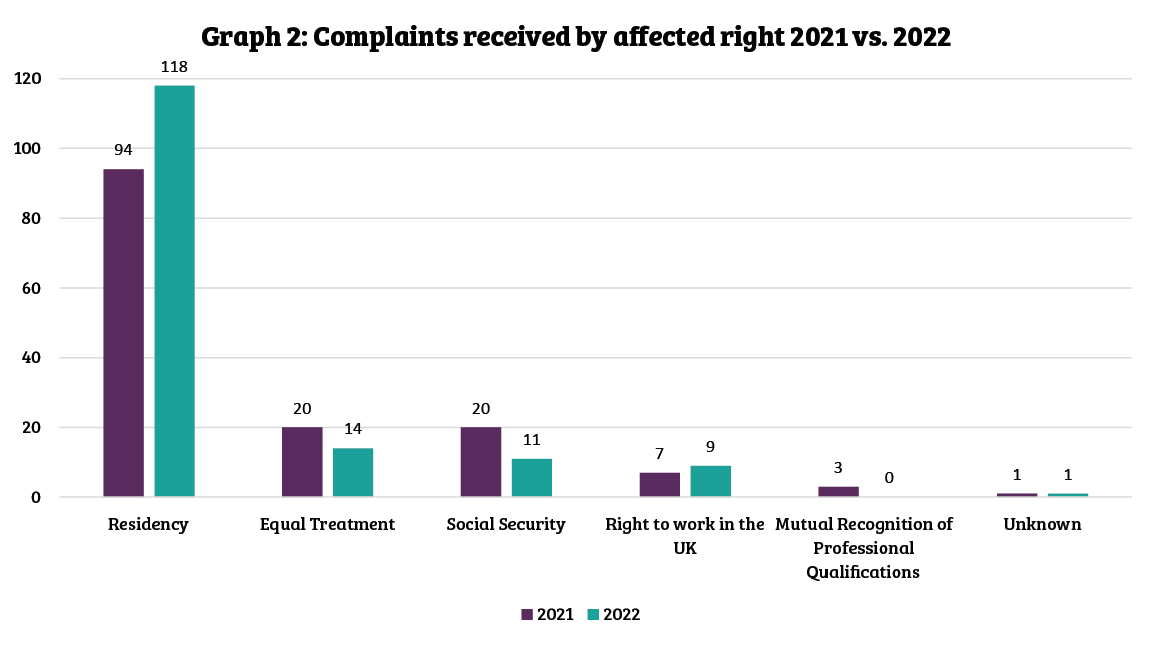
Graph 2 (above) shows how many complaints have been received in relation to each right. There are more complaints by right shown here than the number of complaints received as complainants can select more than one affected right when making a complaint.
Residency
The right to reside includes the right to enter and exit the UK.
Most of the complaints reported to the IMA related to the right to reside.
The complaints are mainly connected in some way to the UK Government’s EU Settlement Scheme (EUSS), run by the Home Office.
The issues raised in these types of complaints include:
Lengthy EUSS administrative reviews and an inability by applicants to obtain updated information as the review progresses.
Ongoing technical issues affecting the View and Prove service which inhibit citizens’ ability to access their proof of status.
Citizens experiencing long wait times for their EUSS applications, beyond estimated application processing times advised by the Home Office.
Work
The right to work, including self-employed work. It also applies to frontier workers; citizens who are employed or self-employed in the UK but live elsewhere.
The issues raised in these types of complaints include ongoing technical issues affecting the View and Prove service which inhibit citizens’ ability to access their proof of status.
Qualifications
The right for qualifications which have already been recognised before 31 December 2020 (or were in the process of being recognised at that time), to continue to be recognised in the UK.
We have had no complaints in 2022 relating to this right.
Social Security
Individuals who have lived in both the UK and the EU before the end of the transition period can continue to access pensions, benefits, and other forms of social security.
The issues raised in these complaints include denial and suspension of benefits based upon EUSS status and difficulties applying for proof of national insurance contributions
Equal Treatment
EU and EEA EFTA citizens and their family members must be treated the same as UK and Gibraltarian citizens when it comes to accessing certain public services and some benefits.
The issues raised in these complaints include denial and suspension of benefits based upon EUSS status and entering and exiting the UK.
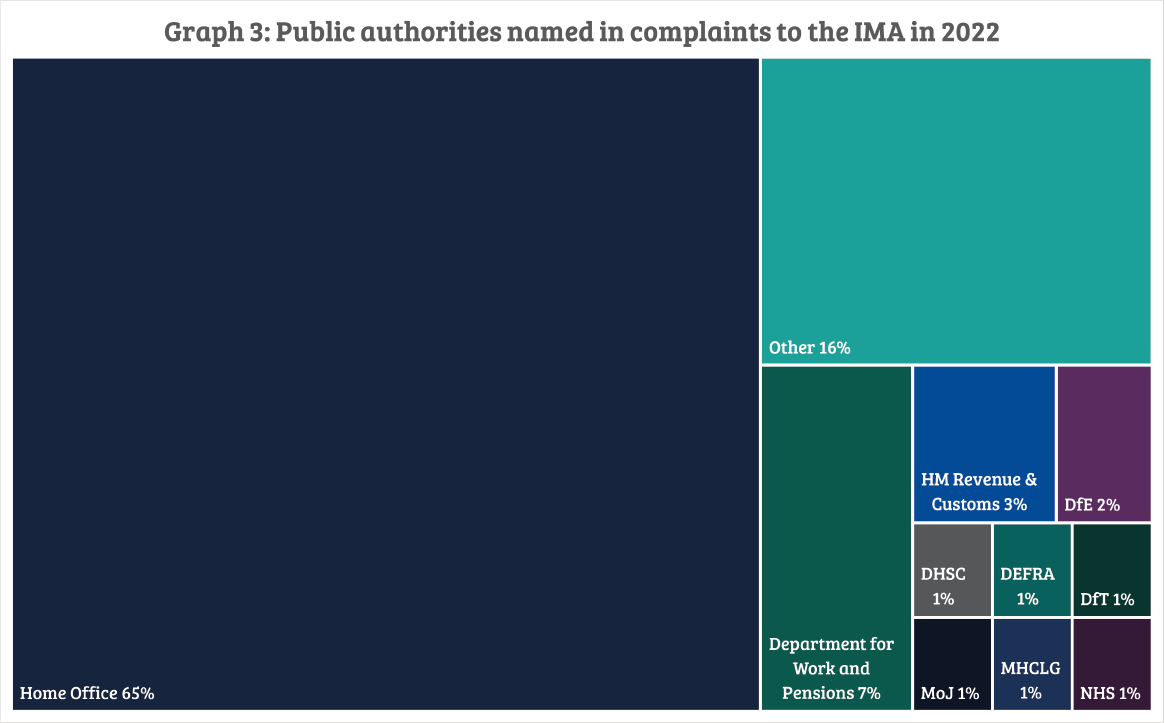
Graph 3 (above) demonstrates that most of the complaints reported to the IMA relate to the Home Office, followed by a smaller group of complaints in the “other” category that are collective of public bodies, including Local Authorities, Student Finance England, and DVLA. The third largest group of complaints relate to Department for Work and Pensions (DWP).
Within the same period in 2021, most complaints likewise related to the Home Office, followed by “other”. However, contrary to 2022 the third largest group of complaints related to HMRC in 2021 (8%), closely followed by DWP (6%).
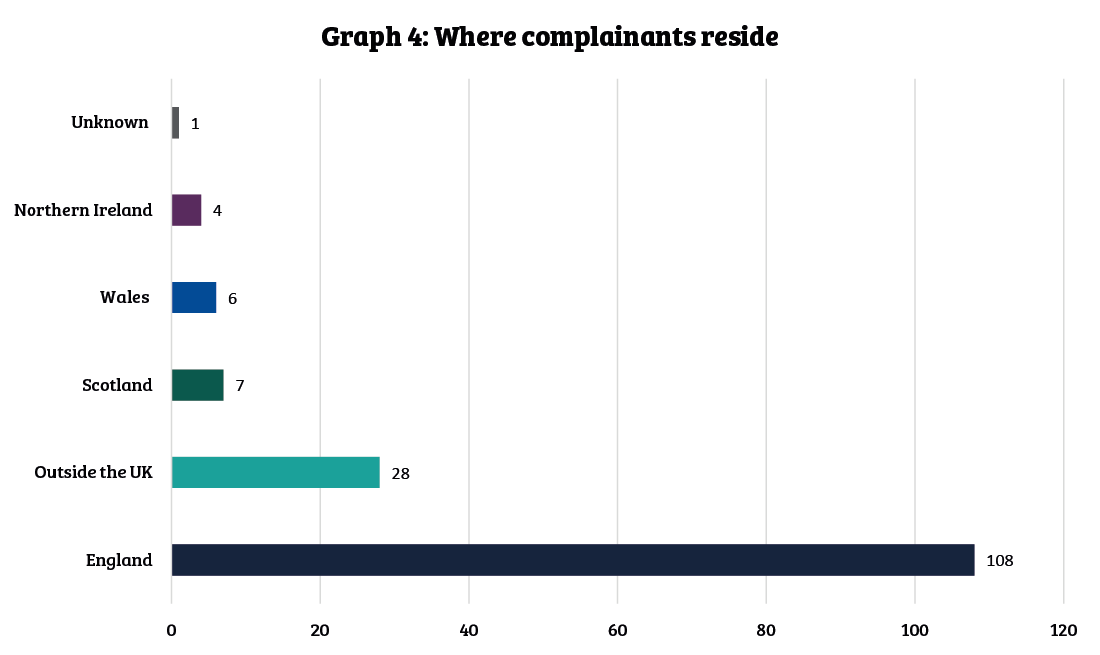
Graph 4 (above) shows where citizens complaining to the IMA in 2022 reside. Most complainants currently reside in England. Those living outside the UK, include complainants who are joining relevant family members already residing in the UK.
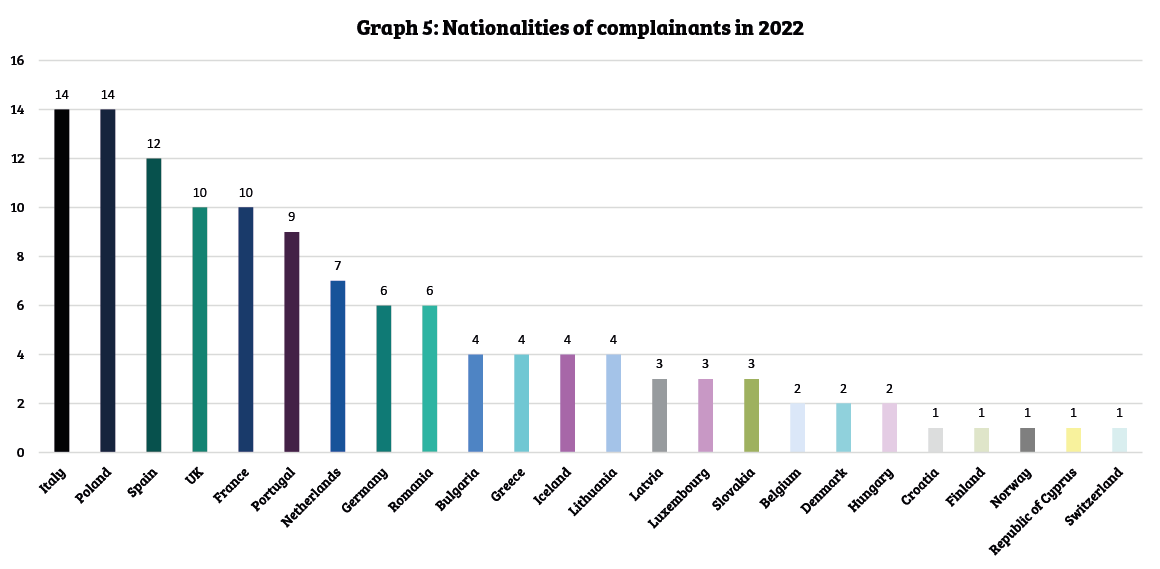
Finally, graph 5 (above) shows the nationalities of those who made complaints to the IMA in 2022. We are yet to receive any complaints from citizens who are Estonian or Icelandic.
The IMA additionally received 30 complaints from nationals recorded as ‘other’ not shown on graph 5. These complainants are non-EU/EEA EFTA or dual nationals and made up the largest category of complainants between 1 January – 31 August 2022.
In Summary
It is vital that eligible citizens experiencing difficulties in exercising their rights make us aware of this through our Complaints Portal.
We have recently updated our website to highlight that citizens are also able to submit a complaint to the IMA via post, should they not be able to access the Complaints Portal.
We continue to raise awareness of our work so that EU and EEA EFTA citizens and their family members can exercise their rights as they did before the UK left the EU.